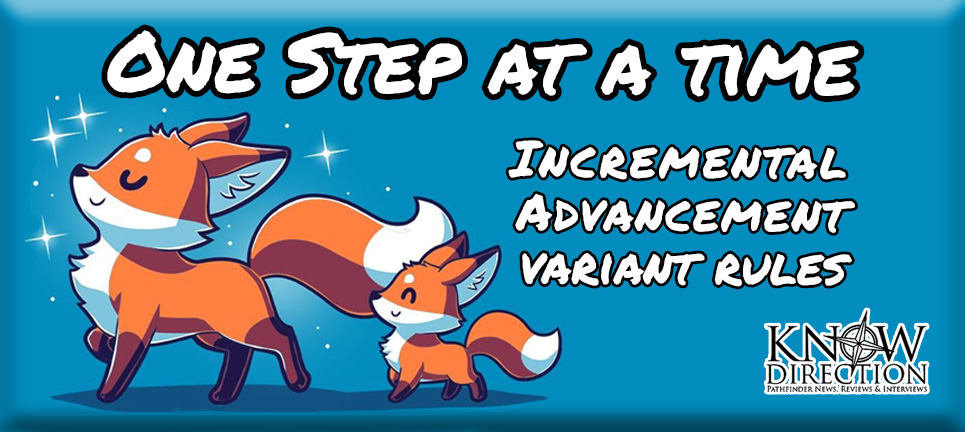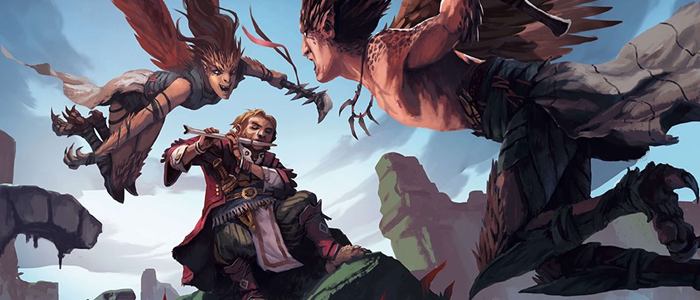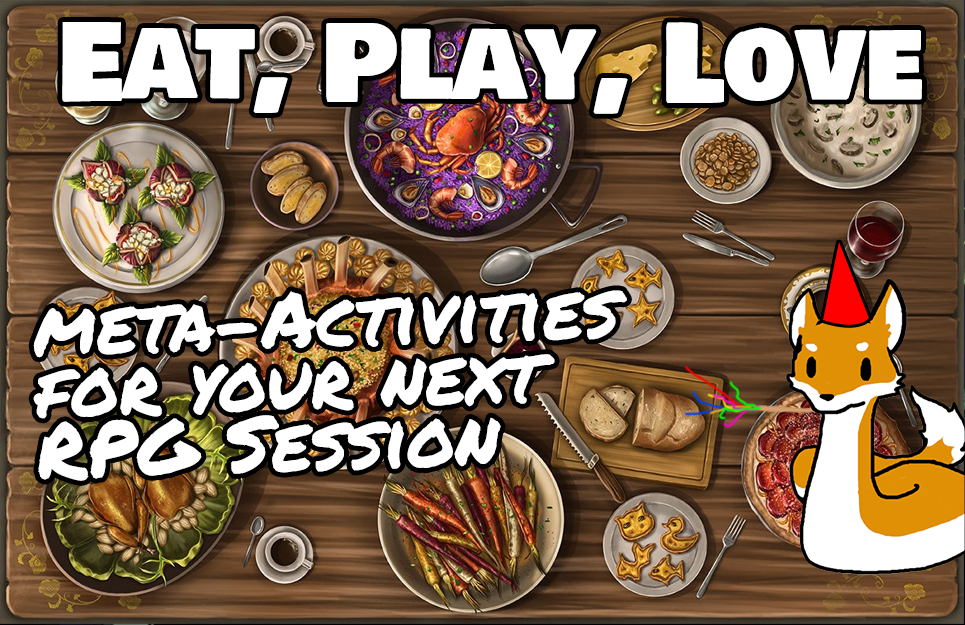The modular nature of Pathfinder Second Edition makes it perfect for variant rules. These rules are intuitive, easy to explain, and can help create positive resonance by helping enhance the themes of your specific campaign with associated rules! The “Incremental Advancement” rule was partially inspired by Dungeons & Dragons Online: Stormreach. It gives characters bits of power as they level, letting your players essentially grow between sessions rather than gaining power in sudden bursts. It does require a little bookkeeping, but has the fortunate side effect of making the game a little less deadly. It also makes each session feel a little more special as players spend the last few minutes of each game leveling, avoiding delays if and when a player forgets to level their PCs before the session begins!
The “Glimpse of Power” rule allows players to use abilities they have yet to unlock, adding to the idea that your players are growing over time and practicing on using future abilities. The pair can be used together to give your party a little extra power or to make things more challenging in a lower-powered rags-to-riches campaign in which your players have to earn their abilities after leveling.
Incremental Advancement
Player characters gain new abilities and Hit Points every 100 XP, instead of every 1000 XP when they would normally earn a level. A character’s level is still adjusted after they earn the requisite 1000 XP for purposes such as proficiencies. The abilities you unlock still require all the same requirements, except you qualify for abilities as though you were one level higher than usual.
Abilities should be divided up in such a way as to complete the primary class features at a steady pace until they get their full retinue at 1000 XP. More powerful abilities should be unlocked toward the end of a character’s advancement each level. Class feats are generally more powerful than ancestry feats and general feats, which are generally stronger than skill feats. You should work with your players to determine how their characters would prioritize their proficiencies, potentially moving around when a character learns a new ability based on how the characters are roleplayed and what opportunities for training and advancement they receive in character. Try to keep the abilities split up so players get as many abilities per increment as possible, and make sure powerful abilities like Archwizard’s Spellcraft and the 20th level capstone feat stay at 1000 XP.
I have provided advancement sheets for the fighter, cleric, and wizard. Please DM me on the Know Direction Discord if you want more, and I will add them to this article! And, as always, remember The First Rule: this game is yours. Adjust everything as necessary for your story and group.
Note: Some abilities can be further divided into multiple increments. For example, “Skill Increase” is earned twice. “Skill Increase 1” gives you a +1 bonus to a single skill, as though you earned “half-a-proficiency-rank”. You don’t actually increase the skill’s proficiency until you earn “Skill Increase (Full)”, giving you both the +2 bonus and the benefits of increased proficiency. Spellcasters earn the slot to cast higher level spells before they earn the ability to cast those spells, giving them the ability to cast a single spell heightened to that level, but not heighten their cantrips or prepare spells of that level (without using Glimpse of Power).
Special: In a low-power or “rags to riches” campaign, you can also use this variant to slow down the advancement of character abilities, forcing players to gradually learn abilities after they gain a character level. This would especially benefit a campaign using the “Level 0 Characters” rule.
Glimpse of Power
The “Glimpse of Power” variant rule gives player characters the ability to access powers they don’t yet have. A player simply selects an ability they don’t yet have and makes a flat-check. The DC is equal to triple the number of 100-XP increments the PC needs to unlock the feature. So if you would unlock a feat at 700 XP and you have 300 XP, it would be DC 12. Spellcasters must use their highest level spell slot available to attempt to cast a spell higher than their highest level spell they can cast. Prepared casters still need to prepare the higher level spell, but don’t use this action until they attempt to cast the spell. This ability takes the same number of actions to activate as the ability you are trying to copy. If the ability doesn’t take actions, such as Weapon Expertise, it instead takes a single action and the improvements last until the beginning of your next turn.
Critical Success: You use the ability successfully. You can attempt this check using the same ability in this session!
Success: You use the ability successfully.
Failure: You fail to use your ability.
Critical Failure: You fail to use your new ability. You suffer the critical failure effect of the ability you attempted.
Special: Gamemasters may require the use of a Hero Point to attempt to use this ability. We recommend giving this action the Heroic trait in that case.
Ew…Experience Points
Most of my gamemasters don’t use experience points, and this system works very easily without it! Pathfinder Second Edition takes 1,000 XP to level each time, so it’s pretty easy to adapt this to any game simply by dividing up your campaign into tenths, quarters, or halves. I still do recommend that even veterans who don’t like XP check out the Pathfinder Second Edition encounter XP-budgeting rules, because it really is well calculated and can help you find exactly how many NPCs make up a challenging encounter.





